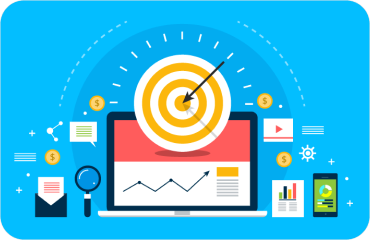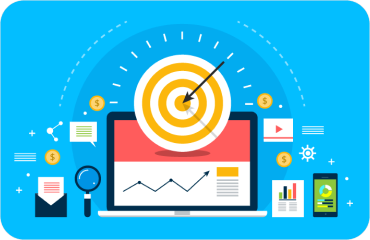In today's digital era, the rapid advancements in technology have brought about a paradigm shift in the way businesses market their products and services. One of the most groundbreaking technologies transforming the digital marketing landscape is Artificial Intelligence (AI). AI has the potential to revolutionize customer engagement, enhance marketing strategies, and boost lead generation and conversion rates. In this article, we will explore the various ways in which AI is reshaping the digital marketing landscape and discuss the future possibilities and trends that businesses should be aware of.
Enhancing Customer Engagement
AI-powered technologies such as chatbots and virtual assistants have become an integral part of digital marketing strategies. These smart assistants can interact with customers in a personalized manner, address their queries effectively, and provide real-time assistance. With AI, businesses can deliver exceptional customer experiences round the clock, leading to improved customer satisfaction and loyalty.
Additionally, AI enables personalized content creation and delivery. By analyzing vast amounts of data, AI algorithms can understand customer preferences, behaviors, and demographics. This information is then utilized to develop tailored content and recommendations, ensuring that customers receive relevant and engaging experiences across various touchpoints.
Another significant development is the use of AI in image and voice recognition. AI algorithms can identify objects, faces, and even emotions from images and videos. This technology allows businesses to create interactive and immersive experiences, making marketing campaigns more visually appealing and emotionally engaging.
Optimizing Marketing Strategies
AI plays a pivotal role in optimizing marketing strategies by helping businesses understand their target audience better. AI-powered analytics tools analyze consumer data in real-time, allowing marketers to identify patterns, trends, and insights that can steer their marketing campaigns in the right direction. By leveraging AI, businesses can segment their customers more effectively, target specific demographics, and deliver personalized messages that resonate with each individual.
Another area where AI is making an impact is in predictive analytics. By analyzing historical data and user behavior, AI algorithms can accurately predict customer preferences, buying behavior, and future trends. This enables marketers to make data-driven decisions and create strategies that are more likely to yield positive outcomes.
Boosting Lead Generation and Conversion
AI has transformed the way businesses generate and convert leads. AI-powered lead scoring models help businesses identify high-quality leads and prioritize their efforts for maximum efficiency. These models analyze multiple data points, such as customer interactions, past purchases, and online behavior, to determine the likelihood of a lead converting into a customer. By focusing their resources on leads with a higher conversion probability, businesses can optimize their lead generation strategies and achieve better results.
Furthermore, AI-powered content recommendations have proven to be a game-changer in improving conversion rates. By leveraging machine learning algorithms, businesses can deliver personalized content recommendations based on user preferences and behaviors. These recommendations not only increase engagement but also guide customers through the buying process, thereby increasing the probability of conversion.
Future Possibilities and Trends
As AI continues to evolve, several future possibilities and trends are emerging in the digital marketing arena. Voice search and AI-powered SEO are gaining momentum, with more users turning to voice assistants like Siri and Alexa to find information. This has implications for businesses as they need to optimize their content and SEO strategies to cater to voice search queries.
Another trend that is gaining traction is the use of big data and predictive analytics. AI algorithms can analyze vast amounts of data from various sources to provide valuable insights into customer behavior, preferences, and market trends. By utilizing predictive analytics, businesses can proactively tailor their marketing strategies and campaigns to meet customer needs, enhancing their competitive advantage.
Challenges and Ethical Considerations
While the potential of AI in revolutionizing digital marketing is immense, it is crucial to address some challenges and ethical considerations. Data privacy and security are significant concerns as AI technologies rely on extensive data collection and analysis. Businesses must be mindful of adhering to data privacy regulations and implementing robust security measures to safeguard customer information.
Additionally, biases in AI algorithms and decision-making processes need to be addressed. Biases can emerge from the data used to train AI models, potentially leading to unfair targeting or discriminatory practices. Businesses must prioritize ethical practices and ensure transparency and fairness in their AI-powered marketing strategies.
Conclusion
Artificial Intelligence is transforming the digital marketing landscape, enabling businesses to engage customers better, optimize marketing strategies, and achieve higher conversion rates. As AI continues to advance, businesses need to stay updated with the latest trends and embrace AI as a powerful tool for growth. By harnessing AI's capabilities and addressing ethical considerations, businesses can unlock the tremendous potential of AI in driving their digital marketing success.


